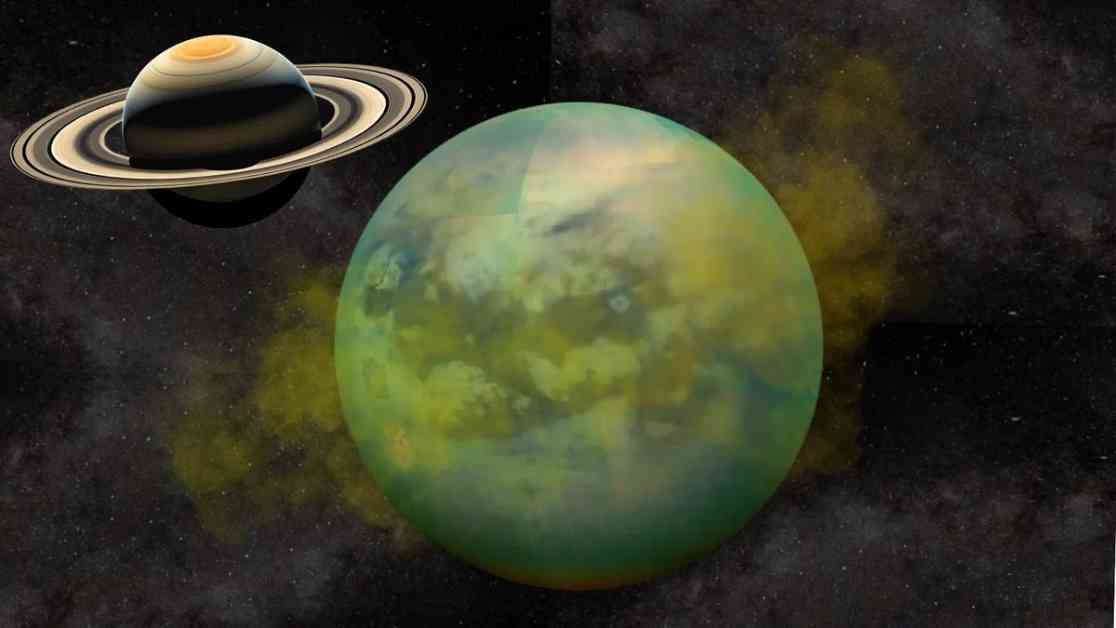Scientists have made an interesting discovery about Saturn’s largest moon, Titan. They found that there may be a thick layer of methane ice beneath the surface, which could make it easier to detect signs of life from the subsurface ocean. Titan is unique in our solar system because, like Earth, it has an atmosphere and liquid rivers, lakes, and seas. However, due to its cold temperatures, these liquids are made up of hydrocarbons rather than water.
The team of planetary scientists from the University of Hawaii at M?noa discovered that methane gas may be trapped within Titan’s ice shell, forming a crust up to six miles thick. This gas could warm the ice shell and help molecules rise to the surface, potentially indicating the presence of life. This discovery could also help us understand Titan’s methane-rich atmosphere and its potential impact on climate change.
The researchers were intrigued by the shallow impact craters on Titan, as they expected them to be much deeper. Through computer modeling, they determined that a layer of methane clathrate, a solid compound of methane and water, could explain the shallow craters. This layer warms Titan’s interior, causing rapid topographic changes similar to fast-moving glaciers on Earth.
The thickness of the methane icy shell on Titan is crucial for understanding its atmosphere, carbon cycle, and climate. Lessons learned from studying Titan could provide valuable insights into processes happening on Earth, particularly regarding methane release from permafrost and arctic seafloor.
The team’s findings could be beneficial for NASA’s upcoming Dragonfly mission, set to launch in 2028. Dragonfly will investigate Titan’s surface up close, potentially uncovering more secrets about this fascinating moon. This research was published in The Planetary Science Journal on Sept. 30.
In conclusion, Titan’s unique characteristics make it an exciting target for scientific exploration. By studying this moon, we may gain a better understanding of our own planet and the effects of climate change. The search for life beyond Earth continues, and Titan could hold the key to uncovering new discoveries in the future.




